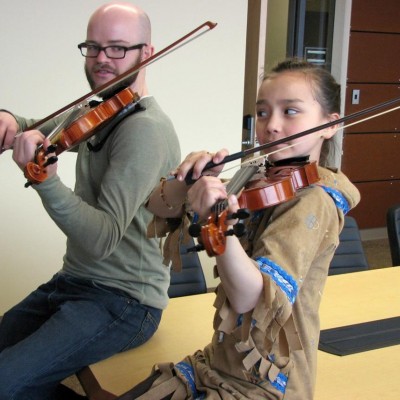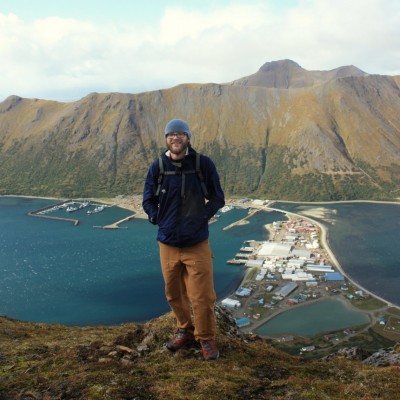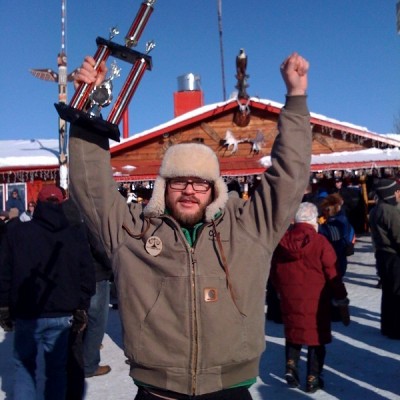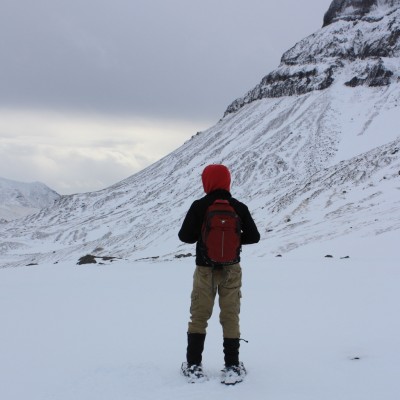“Don’t be afraid to keep doing what you do, ‘Mr. Coray.”
Tim Coray is a teacher for the Denali School district. He attended the Spring 2013 Talk Story, Write Story workshop in Anchorage.
WHY I TEACH
Right Place, Right Time
During the feedback discussion the followed my first reading in the Talk Story, Write Story workshop, Tad Bartimus sharpie’d the word FEAR on the giant Post-It beside her. Expressing what I did in that essay constituted the greatest risk I had taken since beginning my career. The writing done during this workshop was intended to equip participating teachers with strategies for workshopping students’ personal narratives, that they may realize themselves as the heroes in their own stories. An unexpected outcome during this process was to have the mirror turned on me as I explored my own personal narrative. Talk Story, Write Story and the inquiry it inspired within me came at a crucial time in my teaching tenure. Right time, right place.
On a break during the writing workshop, I strolled around the Anchorage hotel block to wrap my thoughts around the massive questions Tad and Dean had posed during an early session: Why do you teach? How do you fit into your community? What’s holding you back? So much heavy thinking called for a recess and some city air. Setting out from the hotel, I was hit with the clean coastal dampness that reminded of the joys of coming to town. Costco. Maybe catching a show or two. Restaurants. Getting out of the mental and geographical boonies. A change of state helps me think, and the workshop had given me plenty to consider.
With each corner I turned of the block, I had hoped to reach clearer answers to the questions. However, the short perimeter only allowed time for pretty blunt answers. Why teach? I started with Hillary Swank’s Freedom Writers’ Diary enthusiasm; now, the job at times feels like a much harder means to an end than necessary. How do I fit into my community? Not easily. I fear I’m only masquerading as a good teacher in a community of actual educators. I constantly question whether I am the right role model for my students.
When I moved to the Aleutians, my father gave me a shotgun so I’d be able to injure the bear that ate me. What’s holding me back? The last corner of the block came too soon. The door back into the workshop would soon be within sight, and I’d soon be asked to articulate my answers to questions I had barely begun to grapple with. There was still much more to consider. I stopped on the sidewalk in front of Uncle Joe’s Pizzeria and Darwin’s Theory Bar. A patron, just leaving, and I struck up a conversation. There’s always time to talk. We wasted no time getting deep in details. She, a preservationist of culture working with her Aleut tribal organization, and I, a visitor wandering downtown subconsciously seeking mentorship. I hate to place- and name-drop, but I couldn’t help but tell her I had taught in King Cove. She lit up. Her Aleutian lilt lifted me from the Anchorage sidewalk and to the boardwalk along the harbor of the community I lived in for three years.
“What did you think of teaching there?” she cautiously felt me out.
There’s far too much to say about the experience of teaching years in “bush” Alaska than a roadside conversation gives way to. Besides, when I talk about King Cove, I tend to gush. My time working with those students constituted three of the best years of my life. All here-and-now hopes. The possibility and the adventure of every moment. Instead, I measured my response to the woman. “Oh, they were cool kids.”
The woman mentioned a boy’s name. “You must know him, yes?” I did. The name she said again transported me, this time to my former classroom with a panoramic view of the Pacific Ocean. Sitting at a desk beside a seventh-grade boy, working after hours together on so many essays he had hoped would gain him entrance to culture camps, leadership retreats, and music festivals. He was the type of student who, once he learned a little bit about a subject, he insisted on becoming a master of it. That is is also how he approached his writing. Between correcting comma splices and fleshing out ideas, we would pause for a look outside. A whale would breech and this student would rattle off its species, approximate age, and direction it was likely migrating. We would trade wisdom in our respective areas of expertise and then buckle back down to the writing. His diligent work and receptiveness to feedback paid off. While his essays might not have always taken him where he hoped to go, his ability to take meaningful risks and work a project through to the end will take him places untold. “He’s wonderful. With his work ethic, he’s destined to become the mayor of the borough,” I declared to my unexpected new friend. “You’re right. He is wonderful. But, he’ll only become mayor if someone shows him how…and only if he wants to be.” she answered.
Alaskans often joke about how small the state feels despite its mass. It’s impossible to pass through an airport or grocery store without seeing someone you know or will come to know. Pausing on the street side to chat with a woman who is no longer a stranger proved that. Talking with her revealed the answers to those big questions: the reason I teach is for those moments, when students realize that they are the heroes of their own stories. The way I fit into my community matters much less than the ways I encourage students to fit into theirs. And, finally, what’s holding me back? Nothing. After we expressed a mutual “Nice to have met you” and I was walking away back to the workshop, the woman called after me:
“Don’t be afraid to keep doing what you do, ‘Mr. Coray.”





